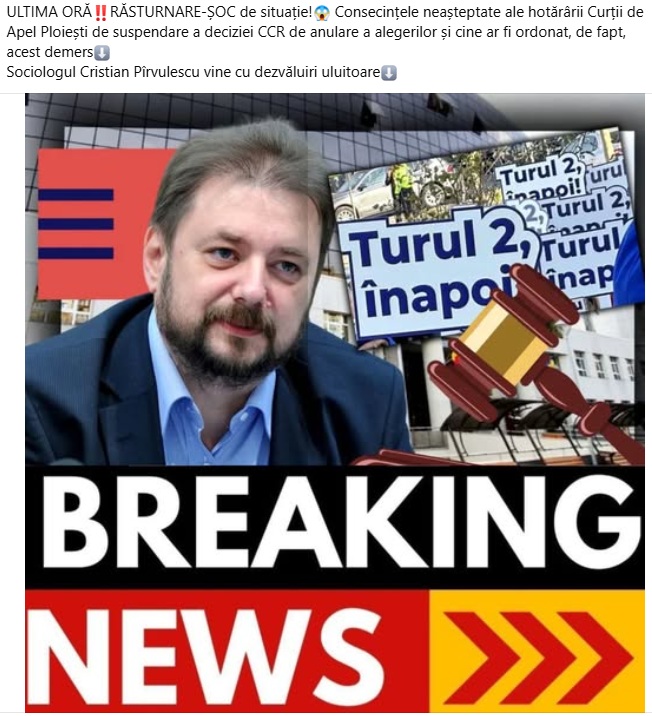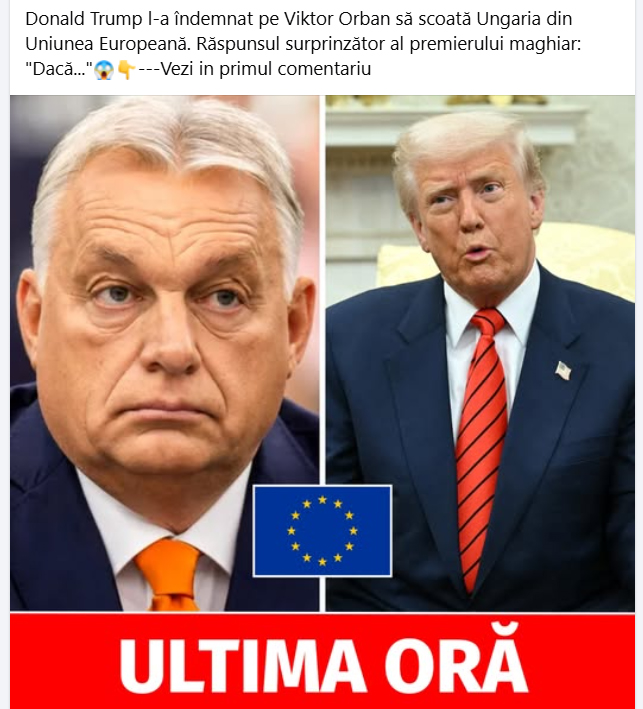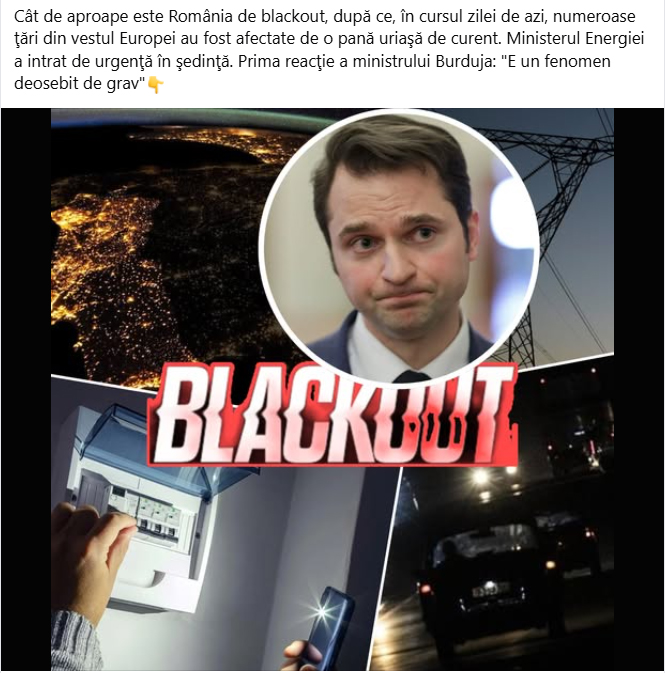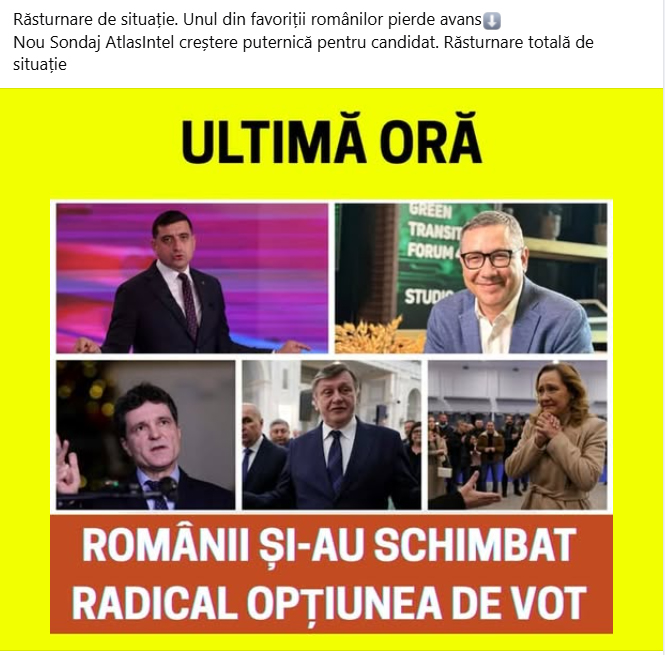
At least 750 accounts on Facebook grouped into almost 60 networks act as a whole, generating in the last month alone a flow of 2 million public posts and over 4.5 million files attached to them, totaling almost 1 TB of data. It is a genuine “ecosystem” designed to influence and manipulate public opinion, with a complexity never before seen.
This is the conclusion of a comprehensive study that centralizes the collective effort of volunteers, members of an online community that set out to identify Facebook pages that promote "harmful propaganda, disinformation or hostile interests", launched in the public space a few days ago, under the name Keys to the Empire (“Cheile împărăției”). The findings of the study were compiled in a format accessible to those who are less familiar with the technical monitoring of social networks. Perhaps the largest of its kind to date, the study clearly demonstrates the existence of a centralized and closely coordinated action plan for the dissemination of information, capable of manipulating decisions and political options for hundreds of thousands or even millions of users. With an aggregate reach of 160 million potential recipients, namely people who actively follow the accounts in question (if any individual followed more than one of these pages, they were marked for each page they followed), these networks operate unhindered “in broad daylight”, proving both the inability of social media platforms to self-regulate in order to protect their users from these forms of psychological and emotional exploitation, as well as the authorities’ failure to pass relevant legislation and impose tighter control over this extremely concerning phenomenon.
From political disinformation to manipulation through cautionary messages. Types of networks
Braking down the types of messages promoted by each network and the frequency of posts, the study in question identified four major categories of such networks.
In the current electoral context, the most important are the highly active networks, which constantly and almost exclusively post political disinformation. The techniques are well-known and range from taking messages out of context in order to mislead the public, to presenting biased interpretations of information. They can include audio and visual means of manipulation, with the help of artificial intelligence, as well as clickbait-type headlines or promoting blatant lies about the topic of the post.

A second category of propaganda networks is represented by the apparently “innocent” networks. Overall, such networks post cautionary messages, articles like “did you know that...” or aim to amplify the audience's emotional response through various tear-jerking stories, usually also generated with the help of AI. In-between these benign posts, viewers are subtly fed political and social messages, designed to gradually modify the public's perception regarding certain politicians, amplifying the audience's tensions, already strained by previous posts.
There are also networks of “dormant” accounts, which routinely post various social news, horoscope readings or other forms of tabloid-type content, thus keeping their user base active, ready to launch massive political campaigns at any time.
A fourth category is represented by networks “on standby”, which often appear to be inactive, but which still have tens of thousands of followers and can be activated at any given time. These can be easily recognized by observing the history of name changes and the periods of “activity” for each network, which indicate past activity with respect to specific campaigns, represented by timestamped actions targeting a specific audience.
The functioning and structure of networks: messages published simultaneously by pages addressing diverse topics, from society news to Christian teachings
To better understand how the (dis)information ecosystem operates, it is noteworthy to specify that the structure and operating method of the identified networks differ on the surface only. They are in fact interlinked by the same strategy, implemented at several levels of action. The number of accounts that are part of a single network starts from a minimum of 5, but can exceed 60, and the frequency and pattern of posts also differ from one network to another. What they all have in common is the fact that, regardless of their nature, messages are published simultaneously on all accounts belonging to the network, thus making sure they are included in the feed of almost any Facebook user in Romania, following shares by the subscribers / friends / followers of the accounts in question.
A network is invariably made up of several pages / accounts that, apparently, address various topics, covering almost the entire spectrum of interest of the Romanian public. Thus, we will find that each network contains a page that, in theory, publishes messages related to society news – Romania 360, cancan.ro, ViralNews.ro etc., Christian teachings – Ortodoxia, Învierea Domnului nostru Iisus Hristos (The Resurrection of our Lord Jesus Christ), Pagina iubitorilor de Dumnezeu-Tu, il iubesti? (The God-lovers page – Do you love God?) etc., life– Sănătatea.ro, Fii Superbă (Be Gorgeous), Remedii Naturiste (Natural remedies) etc., general news – a1.ro, Ştiriletv.ro, Ziarul Digital etc., patriotism – România mea frumoasă (My beautiful Romania), Fabricat în România (Made in Romania), Romania e viata mea (Romania is my life), etc., politics – Partidul Țărănesc (The Peasant Party), Mișcarea România Suverană (Sovereign Romania Movement), Susținem Diana Iovanovici-Șoșoacă Președinte (Diana Șoșoacă for President), etc., entertainment – Muzica Eurodance, Jocuri10, Filme vechi (Old Movies) etc., diaspora – Românii din Străinătate (Romanians Abroad), Departe-s de casă (Far from Home), Club Diaspora, etc.

Additionally, some pages use the names of public figures with a wide media exposure, such as Unofficial: Andra Măruță, Gigi Becali, Dr. Monica Popa etc., or prominent figures of Romanian Orthodoxy, such as Părintele Arsenie Boca, Părintele Constantin Galeriu, Alongside Father Necula etc.
At number 22, the list also features the “Romanian Police” network, which includes 19 official pages of various institutions, including the Interior Ministry, the Romanian Police, the Romanian Gendarmerie, the General Anticorruption Directorate and pages of county Inspectorates for Emergency Situations. The author of the study clarified this aspect, stating that “we have not curated in any way the content on the pages or networks examined in the report, and we have not identified them in terms of ‘good’ or ‘bad’ content. If there are more than 5 pages that post similar stories, then they are listed in the report. However, the sheer fact that the Romanian Police network is listed here confirms that we are dealing with a network with exclusively technical connotations, stripped of political insinuation”.
The principle of mutual validation
Thus, by ensuring a near-total audience reach, these networks bring their manipulative messages to the public, operating through mutual validation and employing a multitude of sources of origin. All that provides them with an apparent legitimacy, as they become providers of undeniable facts to many of their users.
Last week, for instance, in addition to messages related to Easter and the death and funeral of Pope Francis, the most viral topic was the decision of Ploiești Court of Appeal judge Alexandru Vasile, which suggested that the second round of last year's presidential election, which in the meantime has been canceled, would be held urgently. Thus, pages such as Amintiri frumoase (Beautiful memories), Iisus ține la tine (Jesus cares about you), or Nea Mărin fanpage all published the same text suggesting a “SHOCKING TWIST of events!”, with “unexpected consequences:. The image accompanying the text of the featured in the background a photo taken from a rally in support of Călin Georgescu, where protesters were waving banners reading “Take the second round back!”.

Another piece of “news” published in the same political and social vein, published on pages such as Ora de Râs (Time for laughs), Românii din Străinătate (Romanians abroad), or Versuri Rap told people that “the government is preparing to introduce new taxes for Romanians”, relying on the fact that followers would not check the fact that the link to the post led to an article citing “own sources”, while specifying at the same time that “the government dismissed this possibility”.
Sovereignist, anti-EU narratives echoing theses promoted by Russian propaganda
Overall, disinformation propaganda messages seek to discredit or possibly “brushing off” local politicians, but they also cover a broader spectrum through references to the major themes of disinformation at global level.
Thus, in the context of Donald Trump Jr.'s visit to Romania, earlier this week, several accounts from the same network posted, a text stating that “Donald Trump urged Viktor Orban to take Hungary out of the European Union”. Posted just minutes after the arrival of the president’s son, the message is part of a meta-narrative that claims Romania is an EU colony. According to this narrative, decisions in Romania are taken in Brussels, while Romanian resources are monopolized by Western exploiters, while at the same time advocating Romania’s withdrawal from the European Union and NATO. The manipulation operates at two levels, one more obvious, stating that the American president, who is extremely popular among Romanian sovereignists, knows how harmful the EU is for Member States, and one more subtle, which speculates Romanians’ hostility towards their Hungarian neighbors, now supported by the “leader of the free world” and ready to overtake Romania in the race for freedom and prosperity.

In the same sovereignist vein, making pseudo-religious references, another post published on one of these networks announced “a terrible prophecy about Romania: water will pour down, the sky will turn pitch dark”. In the article attached to the post, the “famous Maria Ghiorghiu” (?!?) made a “horrifying” prediction about Romania, after having been warned by “THE SAVIOR JESUS CHRIST” himself. Particularly concerned about the fate of Romania, the Son of God advised us to be “very careful where serious floods often occur due to heavy rain”, and divinely rebuked us for cutting down the forests and entrusting them to foreigners.
The massive power outage that affected Spain, Portugal, Andorra and France was, in turn, a timely opportunity to activate disinformation networks, which, in the same register that demonizes the EU, future extremely harsh measures the president of the European Commission, Ursula von der Leyen, is about to introduce, on the one hand, while on the other hand predicting a similar scenario for Romania, which had already called an emergency meeting. 
In fact, von der Leyen had merely announced that the European Commission will work with the authorities to closely monitor the developments generated by the power outage, and that it would help restore the affected systems through information exchange and joint efforts. Similarly, in Romania no crisis management task force had been convened. Energy Minister, Sebastian Burduja, said that in Romania the situation was under control, with no problems being reported in the national grid, and that Romanians had nothing to worry about.
Apart from the typical election messages mentioned above, the last week of the presidential election campaign also saw publicized the inevitable opinion polls, which “totally overturn the odds”. In fact, the poll in question did not overturn anything, and was merely an opportunity for “supporters” of two of the self-proclaimed sovereignist candidates to express in the comments their intention to vote for them. Thus, comments were filled with messages like “vote in large numbers”, “our president, the others can go to jail”. At times you get the occasional allusion that this or that candidate is funded by Soros and the globalist system that is slowly giving away all our assets”, or by making vulgar remarks about opposing candidates “that one is a notorious drunkard”.

Many of these narratives are very similar (or even identical) to those promoted by Russian propaganda.
Disinformation promoters invoke freedom of speech, but want to censor diverging opinions
The study is the result of the solitary and oftentimes painstaking efforts of Bogdan Stăncescu, who describes himself as “someone who believes in democracy and factual information”, based on data collected by the nearly 11,000 members of the Facebook group “AI de noi”. A few days ago, the group was shut down by Meta due to a confusion over the platform’s algorithms, which failed to distinguish between reporting and promoting a manipulative post. Adding to that were a lot of negative reports to Facebook, coordinated by one of the propaganda pages reported by the group, which even created guidelines on what type of content each member should report and how, so that the initiative would reach maximum efficiency.
Just like the wave of clearly manipulative posts analyzed above, this action also suggests that a specific design is behind this initiative, carefully coordinated and capable of financially and logistically supporting such large-scale operations. The identity of the source will hopefully be revealed sooner or later by the relevant Romanian authorities.
By the time this article will be published, the AI de noi group has been restored by Meta, not before allowing Gheorghe Piperea, a well-known conspiracy theorist and promoter of fake news and disinformation, a moment of self-indulgence when he triumphantly announced that “the AI de noi group of digital snitches has been shut down by Facebook. They were promoting a hate speech with Nazi overtones. Careful what you wish on others, lest it should happen to you”.
We dare draw the lawyer's attention, although we are confident he already knows this, that freedom of expression is by no means tantamount to the freedom of endlessly spinning lies for electoral purposes, according to no reasonable or common-sense criteria, regardless of how biased they are. Similarly, inducing fear and panic among the population in order to present yourself as part of the solution to an imaginary problem, does not represent any evidence of free and sovereign thought. Stopping and prohibiting disinformation is not censorship, but, in the most democratic way possible, a minimal act of navigating the infodemic in an increasingly fluid and unpredictable geopolitical context.


---copie-image.webp)